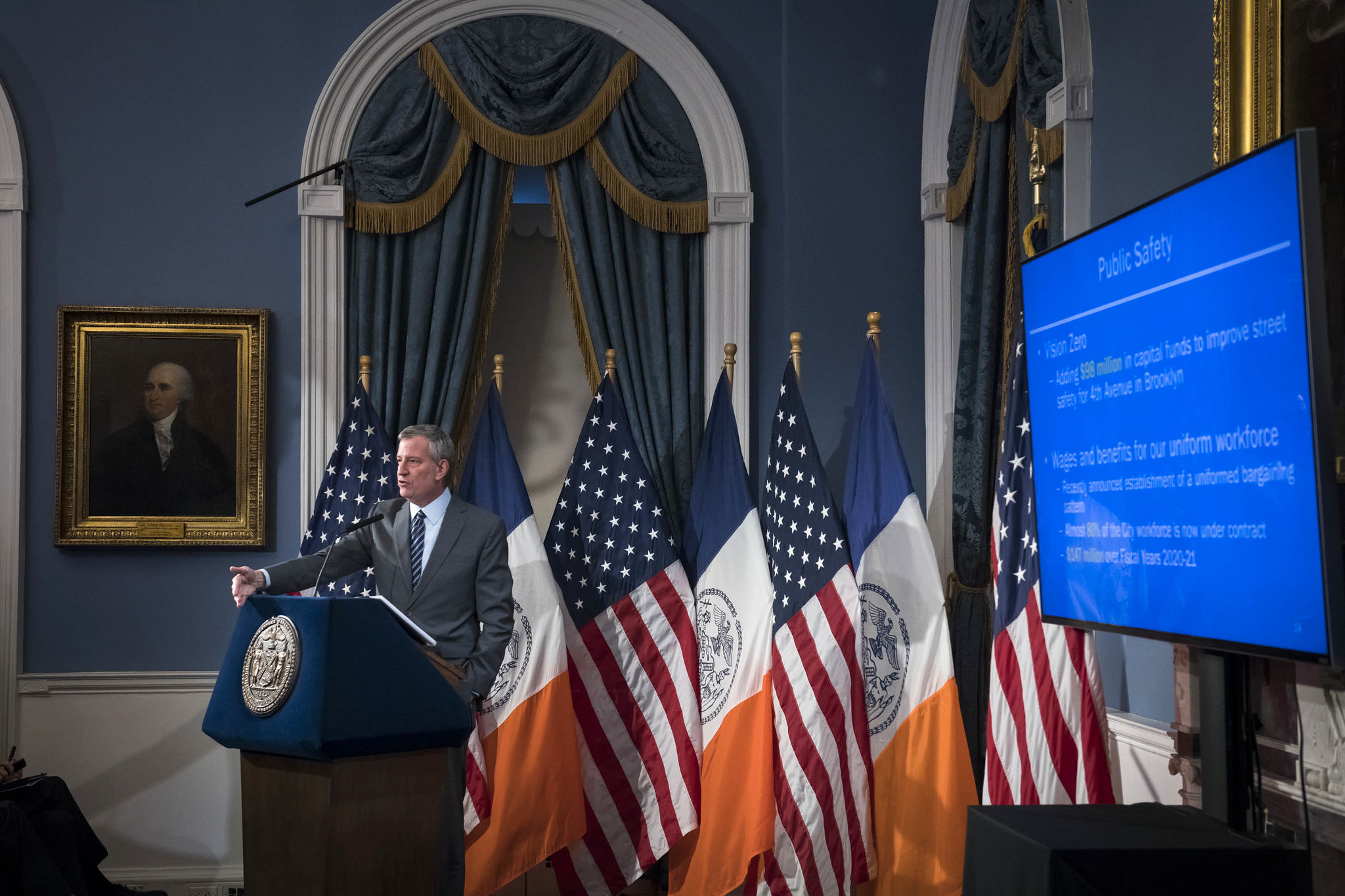Mayor blames state deficit in ‘cautious’ $95.3B budget preview

Mayor Bill de Blasio bemoaned the state’s projected $6 billion budget gap — New York’s largest since 2011 — during his annual preliminary budget press conference Thursday, presenting few new proposals for fear of lack of funds.
“After seven years doing this, this is the briefest presentation I’ve ever had to make because the situation is very straightforward and our focus is one place: Albany, New York,” de Blasio told reporters. “This is by far the largest state deficit we’ve ever confronted by a lot.”
The mayor’s $95.3 billion city budget proposal for the 2021 fiscal year, which his office is describing as “cautious” in light of a “new reality,” is $2.5 billion larger than the 2020 fiscal year budget. It will be parsed and analyzed for the next several months, ahead of a final budget agreement with the City Council expected in June.

Brooklyn Boro
View MoreNew York City’s most populous borough, Brooklyn, is home to nearly 2.6 million residents. If Brooklyn were an independent city it would be the fourth largest city in the United States. While Brooklyn has become the epitome of ‘cool and hip’ in recent years, for those that were born here, raised families here and improved communities over the years, Brooklyn has never been ‘uncool’.